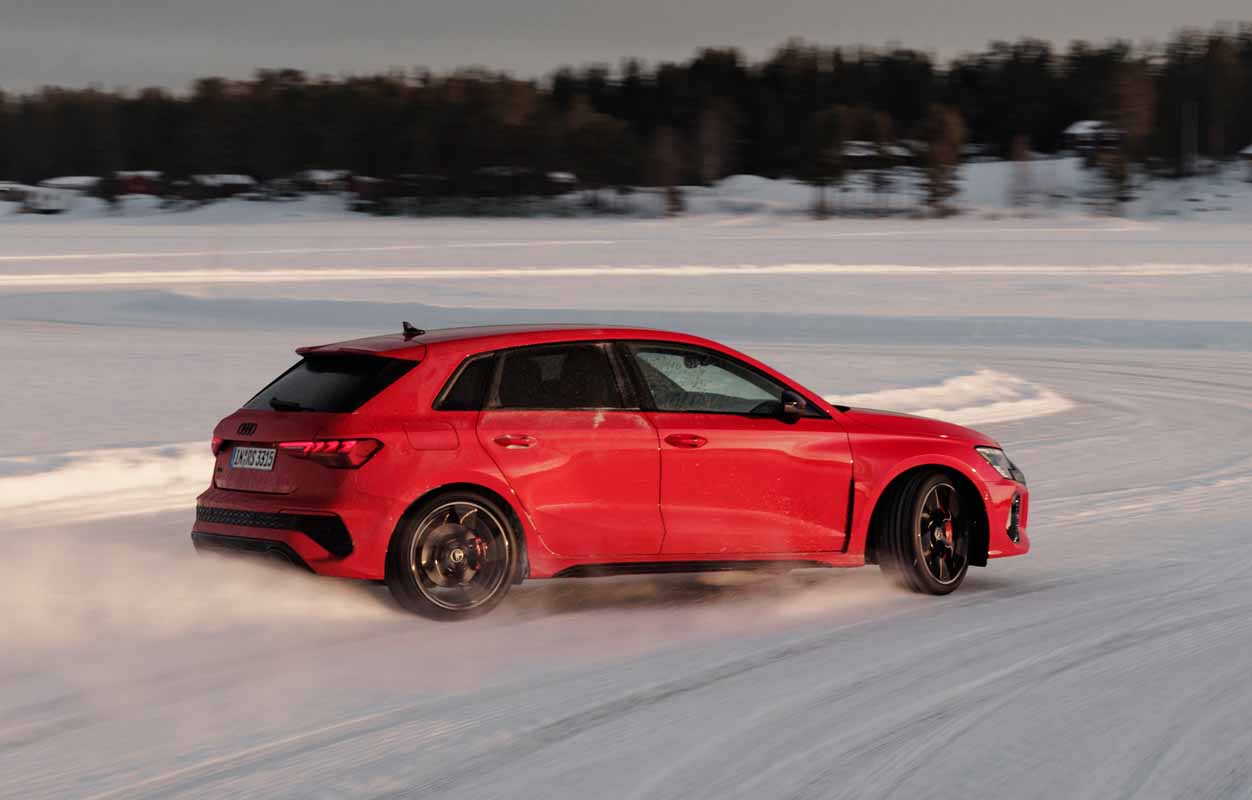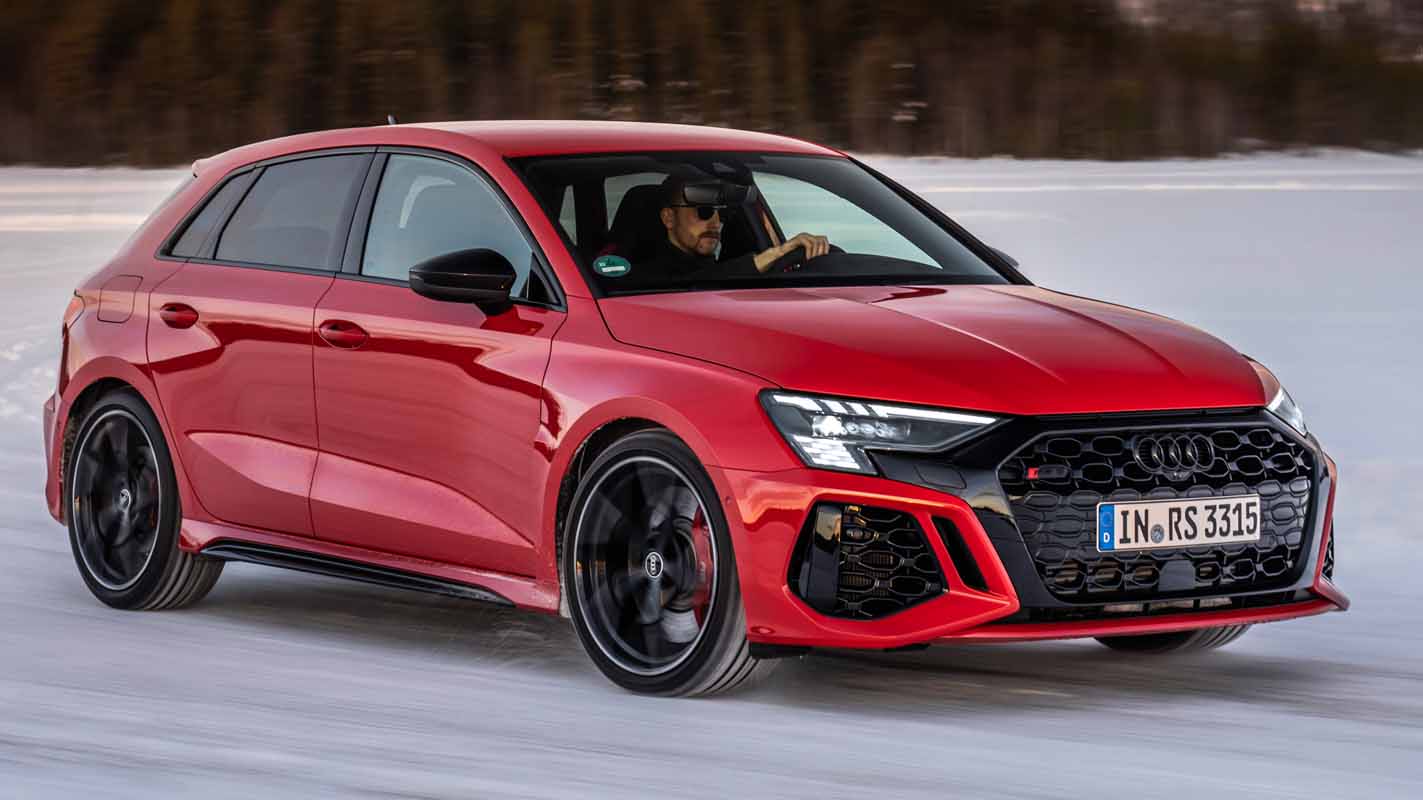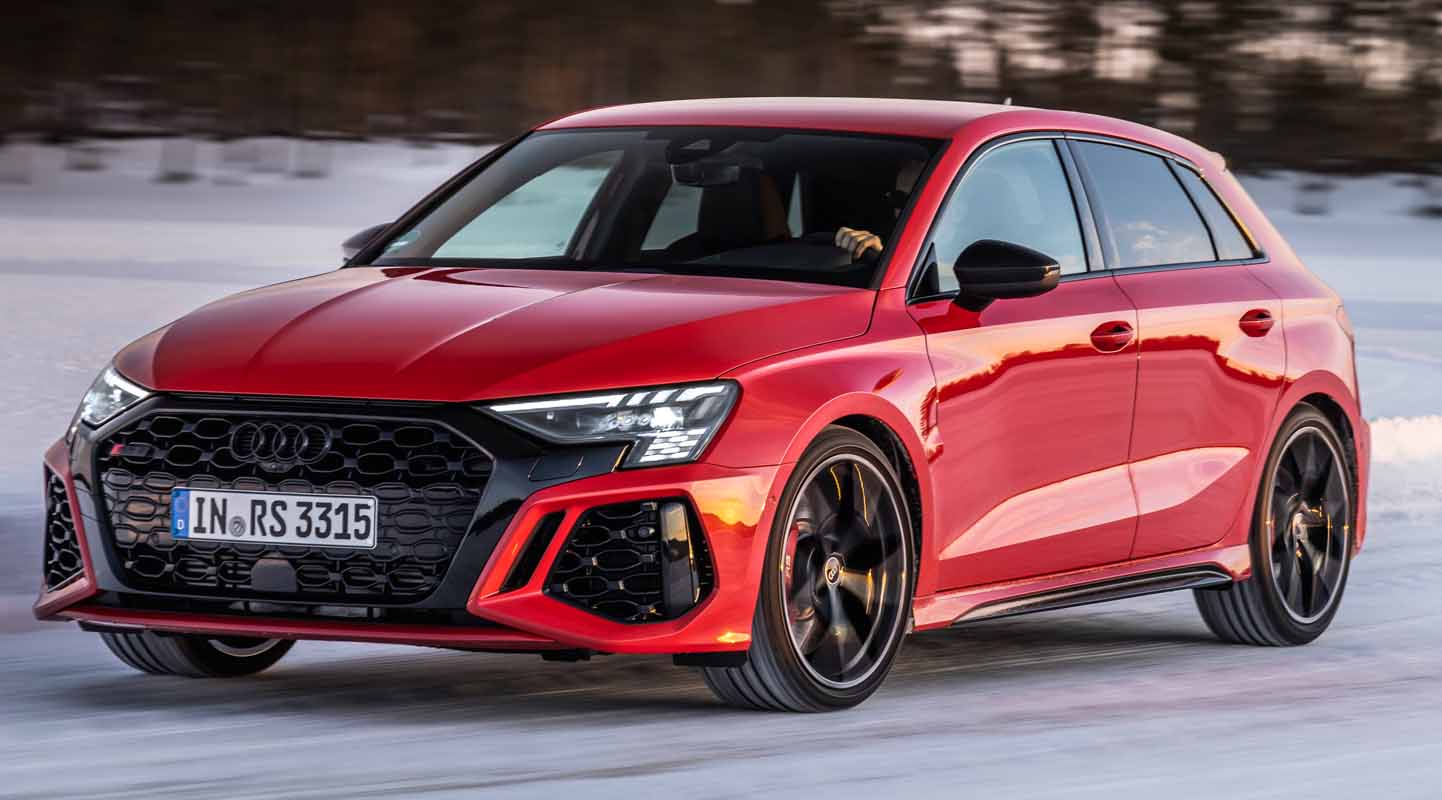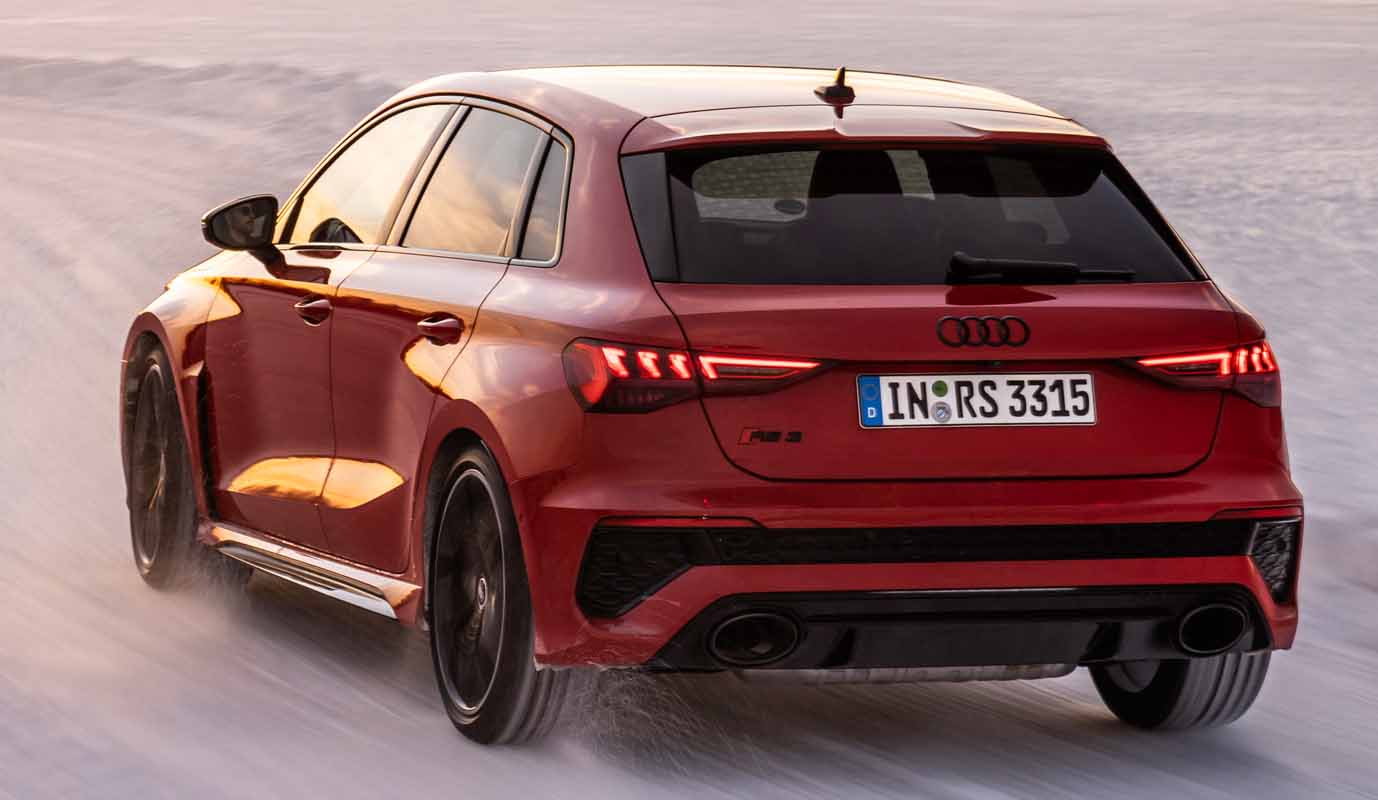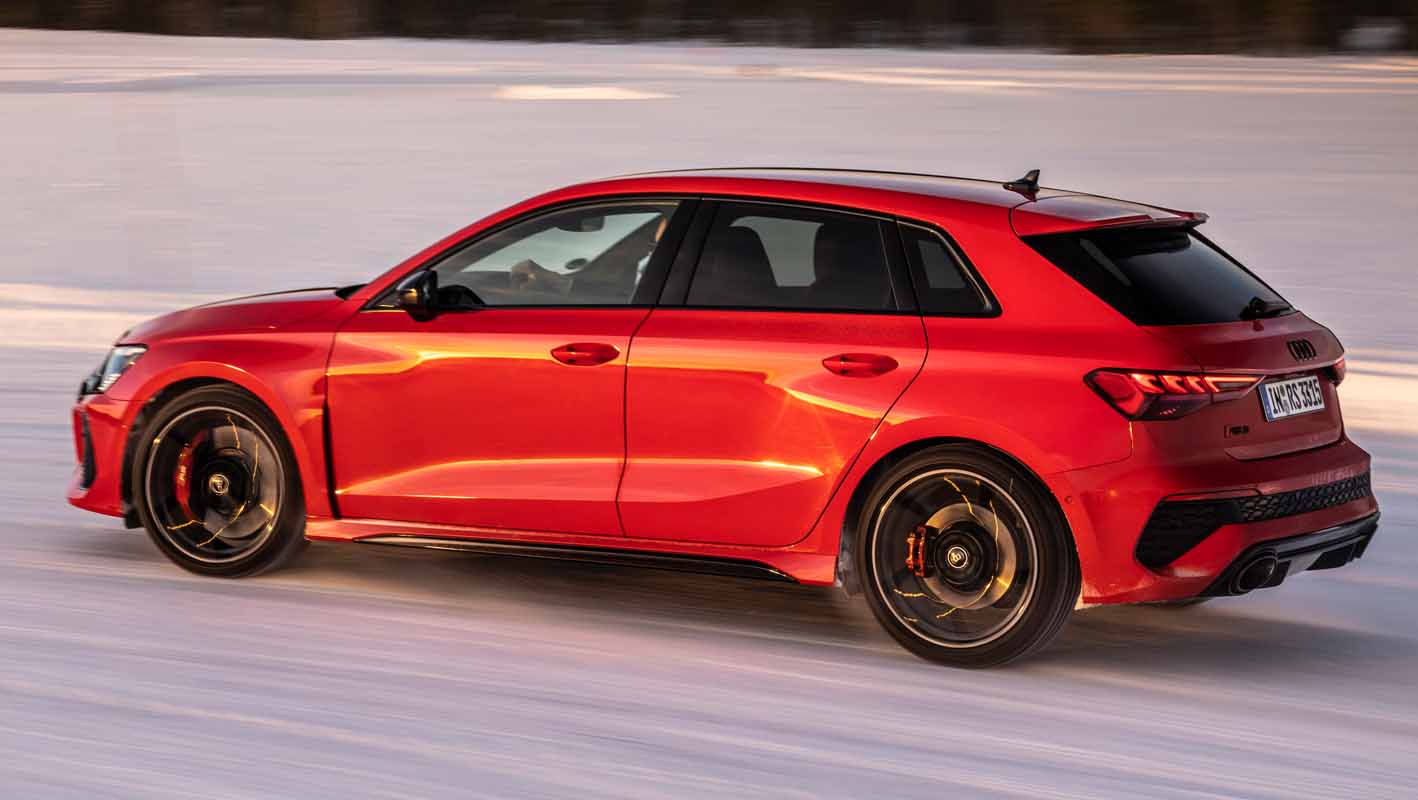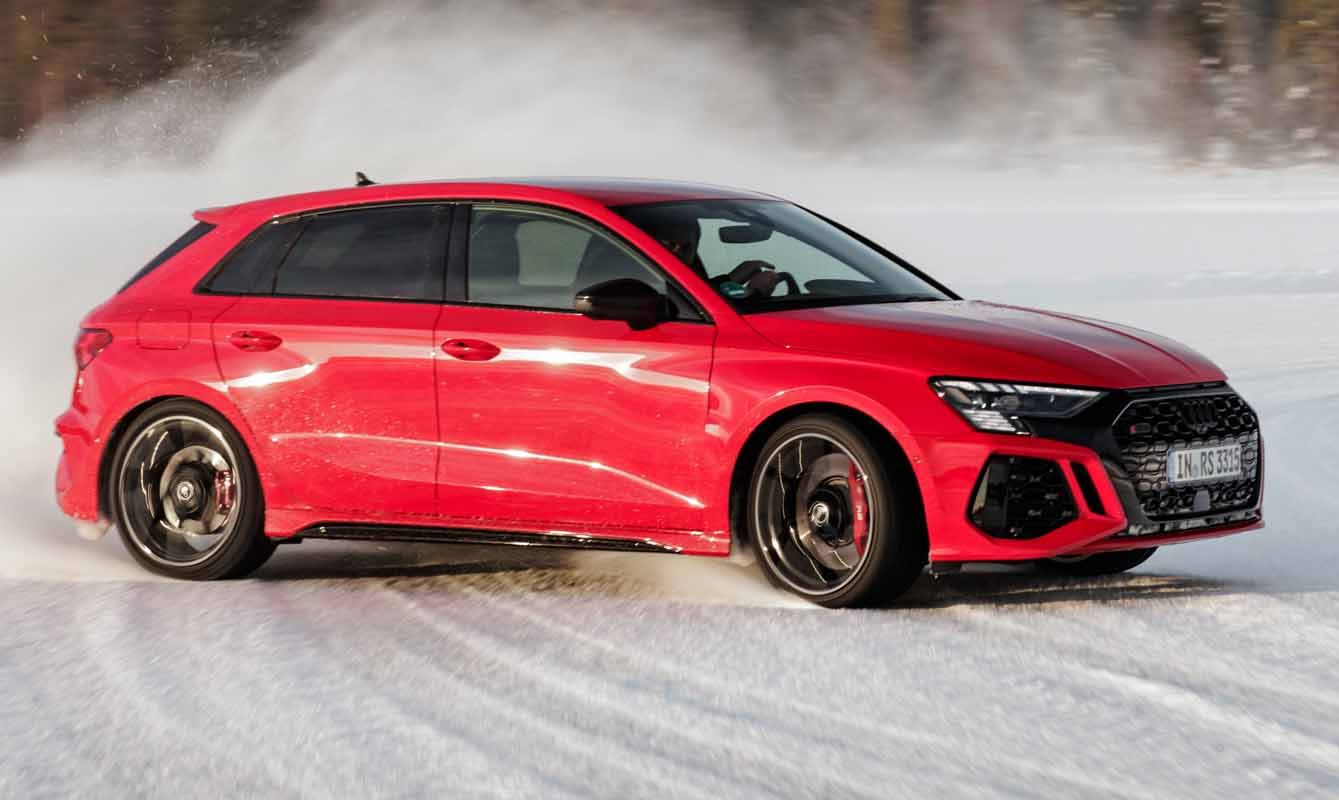
quattro is Audi, and Audi is quattro. The all-wheel-drive system is one of the core areas of expertise of the four rings and represents optimum traction on any surface. The quattro drive system is used in conjunction with the RS Torque Splitter for the first time in the Audi RS 31. Drifting in an all-wheel-drive car? This is how it works in the RS 31 …
All you need to do is open the menu for the Audi drive select dynamic handling system. There are seven modes available: efficiency, comfort, auto, dynamic, RS Individual, and the two RS 3–specific driving profiles, RS Performance for the racetrack and RS Torque Rear for use on closed roads. That last mode is the setting you need to drift in the RS 31.
The essential technical feature for this is the RS Torque Splitter – one of the top innovations in the Audi RS 31. Although the quattro drivetrain is identical to the predecessor model as far as the rear axle, the rear-axle differential with an upstream multiplate clutch package has now been replaced by an electronically controlled multiplate clutch on each drive shaft. This enables the RS Torque Splitter to distribute the drive torque for the rear axle between the rear wheels fully variably. The result is better stability, particularly on wet ground, and improved agility during fast cornering.
Here’s how it all works, technically speaking: The torque delivered to the transmission by the engine is converted depending on the gear selected and applied at the differential housing of the front-axle drive as overall drive torque. From there, the overall drive torque is distributed to the front wheels via the front-axle differential and, when the clutches of the RS Torque Splitter are closed, to the rear axle via the angle drive and the cardan shaft.
The cardan shaft is connected directly to the RS Torque Splitter without transmission gearing. The bevel gear transfers the torque for the rear axle to the ring gear of the rear-axle drive. If one front wheel slips, the torque released as a result can be distributed to one wheel or both wheels on the rear axle. A maximum of 50% of the drive force can be transferred to the rear axle. The RS Torque Rear mode, designed specifically for closed roads, induces considerable oversteer by transferring all of the rearward drive torque to the wheel on the outside of the curve.
Drifting and sporty driving with lateral dynamics are a huge amount of fun – especially with the five-cylinder turbocharged engine developing 400 PS, plus ceramic brakes and RS sport suspension.
1. Audi RS 3: Combined fuel consumption in l/100 km (US mpg): 8.8–8.2 (26.7–28.7); Combined CO2 emissions in g/km (g/mi): 201–188 (323.5–302.6)
